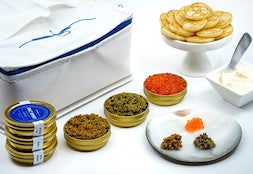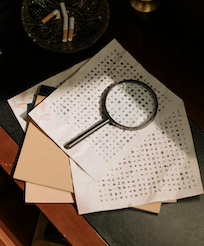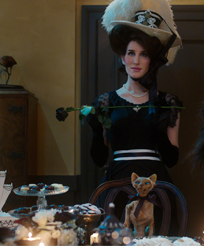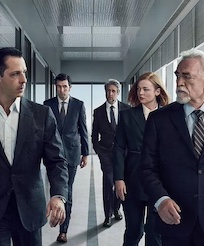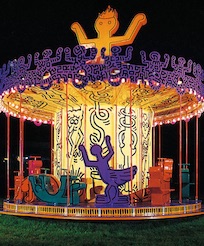Consider, if you will, Donald Glover’s smile.
Magnanimous and magnetic, it activates his entire face: eyes brightening, teeth gleaming, cheeks straining. It’s a smile, when smiled, that’s as forceful as it is sudden, as effortful as it is effortless, as jarring as it is inviting. You want to hold onto it; if only a small piece of it could be yours. It’s a smile like a light switched on in a dark room, sending its glow inwards and out, reflective and generous. It’s beautiful.
On the long-running sitcom, Community, as the happy-go-lucky jock, Troy, the smile was childlike, with all the tenderness and bliss the word implies. He flashed it often, without abandon. It felt like the easiest thing in the world. In his alter ego Childish Gambino’s video, “This Is America,” the smile surfaces as Glover—shirtless; manic—wriggles and writhes, dancing like a man possessed. A moment earlier, he’d blithely shot a man playing guitar; later in the video, in a scene redolent of the Charleston massacre, he mows down an entire black chorus with a spatter of machine gun fire. In the closing moments, Glover is running as if for his life from the police, the warped delight of that smile diluted into a much more primal emotion: total fear.
Writing for The New Yorker, Doreen St. Félix suggests the video’s crazed yet casual shifts from ecstasy to violence is Glover’s way of suggesting what it’s like to be black in America—“at any given time, vulnerable to joy and destruction.” Hannah Giorgis, in The Atlantic, calls the video “both playground and penitentiary, a place of celebration and mourning.” As the ending connotes, no matter who the black man in America is—celebrity or not—he is never safe.
Almost as interesting as the countless interpretations of “This is America”—and there are countless—is the context in which it was released: concurrent with Glover’s live performance on Saturday Night Live, which he also hosted. One joke, in the opening monologue, is particularly notable here. Glover, by way of introduction, says he starred in the sitcom Community, and stars in the upcoming Star Wars movie, Solo. Then he adds: “And if you’re black, I made Atlanta and Redbone.”
On SNL, which, it should be noted, has traditionally been tailored to a predominantly white audience, Glover gave a performance that reminded me of his electrifying charisma. It’d been so long, I felt like, since I watched him really let go like that. But in juxtaposition with “This is America,” the joyful exuberance of his performance on SNL had a jagged edge; in its contrived exaggeration, Gambino’s smile in the video seemed to deliberately reference minstrelsy, forcing one to question the intent or meaning behind similar smiles we’d seen in previous performances. Who, then, was Glover’s joy on SNL, and even Community, really for? Was it for him? Was it for white people? Was it for both? We’ll never know, but the answer probably lies somewhere in the middle.
Of course, Glover, as Earn, rarely smiles on Atlanta; if he does, it’s only because he has to. Earn is subdued, almost narcotized—and not just in an “I’m stoned” kind of way. He often walks around with a backpack slung over his shoulders, but the load he seems to carry is less physical than psychic: the weight of his responsibilities as a father, certainly, but also the weight of being an ambitious black man in America—particularly one who, as a Princeton drop out, is acutely aware of his potential. His cousin Al, aka Paper Boi, who is perhaps the real protagonist of “Robbin’ Season,” which concluded last Thursday, is equally unsmiling. Brian Tyree Henry imbues him with an unidentifiable exhaustion, a visceral sense of ennui; despite his increased popularity, he is more wary and weary than ever before. Everybody wants something from him—whether it be the white weed dealer’s girlfriend in episode two, the wily barber in episode five, his friend Tracy in pretty much every episode or the teen rascals who mug him by the woods in episode eight. For Paper Boi, success is as much a goal as it is a threat; in Atlanta, fame is aggrandizing, but mostly just in the sense that it makes you a bigger target.
Nobody wants to make this comparison, but one of Atlanta’s closest televisual relatives is Entourage, HBO’s mid-aughts show about a come-from-nothing movie star from Queens, Vincent Chase, and his home boys—one of whom, E, like Earn, becomes his manager—navigating fame and fortune in Los Angeles. Yet where Entourage is all models and celebrity cameos, giant homes and flashy cars, Atlanta is smalltime strip clubs and faux-celebrity cameos, shitty college concerts and jalopies. In Entourage, with its white protagonist, fame is a shallow male fantasy; in Atlanta, with its black protagonist, fame is a nightmare. The latter borrows its most powerful elements from the realm of horror movies, what with the profoundly creepy standalone episode, “Teddy Perkins”—which was about, amongst other things, the childhood abuse of Michael Jackson and the toll of his stardom—and “Woods,” where Paper Boi is persecuted by enemies both actual and imaginary. Entourage treats fame pornographically, with a suffusion of lavish surfaces and ridiculously low stakes. Atlanta manifests it as a force so powerful and strange as to render normal life practically unreal.
Indeed, much of season two is spent negotiating what’s real and what’s fake. The show’s surrealistic flourishes—in both “Teddy Perkins” and “Woods,” but other episodes as well—serve to disorient the viewer as much as the characters. There is also the matter of social media, particularly Instagram, which comes to the fore more than once in “Robbin’ Season.”
In “Champagne Papi,” Van’s bottle episode, she and her friends attend a New Year’s party at Drake's house (or so they think). Van’s entire motive for going to the party is to get a picture with the artist, and post it on Instagram. She is not alone: while Drake himself isn’t there, some entrepreneurial ladies have taken it upon themselves to charge guests to take photos with a life-size cut-out of Drake, which they promise will look just like the real thing. Instagram, in the show, as in life, becomes a site where artifice and reality collide, making it difficult to distinguish the difference between the two.
Al, for his part, is visibly uncomfortable with the idea of Instagram, as in “Sportin’ Waves,” when his new dealer discreetly snaps a picture of him, and “Woods,” when his lady friend Sierra, an influencer of sorts, tries to convince him into allowing her to make them a couple—at least on Instagram, if not real life. Al dismisses Instagram as “fake shit.” His reluctance seems to come from an anxiety about selling out—abandoning who he is for who he might become—but also a fear of being seen. This feels similar to Glover’s view of fame, vis-à-vis both his testy profile in The New Yorker and “This is America”; he seems to both invite and run from the attention. Eventually, though, Paper Boi gives in. At the end of the episode, he lets a white fan take a picture with him in a convenience store and post it to Instagram. It’s one of the only times Al smiles in “Robbin’ Season.” Like Glover, Henry makes you wonder who it’s really for—whether it’s genuine, or out of necessity, or a combination of both.
As evidenced lately, with the Twitter tirades of one Kanye West, social media has the power to both confuse and clarify a person’s celebrity. The more someone shows us, the more we’re aware of all they refuse to. In Atlanta, the general anxiety Instagram induces, stoking a desire to be seen while also making one question and protect his authentic self, seems to reflect Al’s specific anxieties about becoming famous in a world where so many want to see him fail (or, you know, rob him blind).
The last two episodes of the season, “FUBU” and “Crabs in a Barrel,” are naturally symmetrical, literalizing and enriching the show’s ongoing reckoning with reality. In “FUBU,” which tracks Earn and Al in middle school over the course of one day, Al stands up for Earn, defending his FUBU jersey as real against claims from bullies that it was counterfeit. In a classic Atlanta turn, the boy wearing an identical jersey—which is real—gets made fun of instead, so much so that he goes home and kills himself. Earn appears to feel guilty about it; Al not so much. He knew what he had to do. In “Crabs in a Barrel,” Earn forgets to take out the pistol he got from his uncle out of his backpack before going to the airport, en route to a European tour. While in line for security, he slips it into another person’s bag. Al notices, and tells Earn once they’re safely on the plane: “N****s do not care about us, man. N****s gon’ do whatever they gotta do to survive, ‘cause they ain’t got no choice. We ain’t got no choice, either. You my family, Earn… You the only one that knows what I’m about. You give a fuck. I need that. Aight?”
The only thing that’s real to Paper Boi, it seems, is his relationship with Earn. How true; how lovely; and how sad. How much else, one wonders, must be fake?


